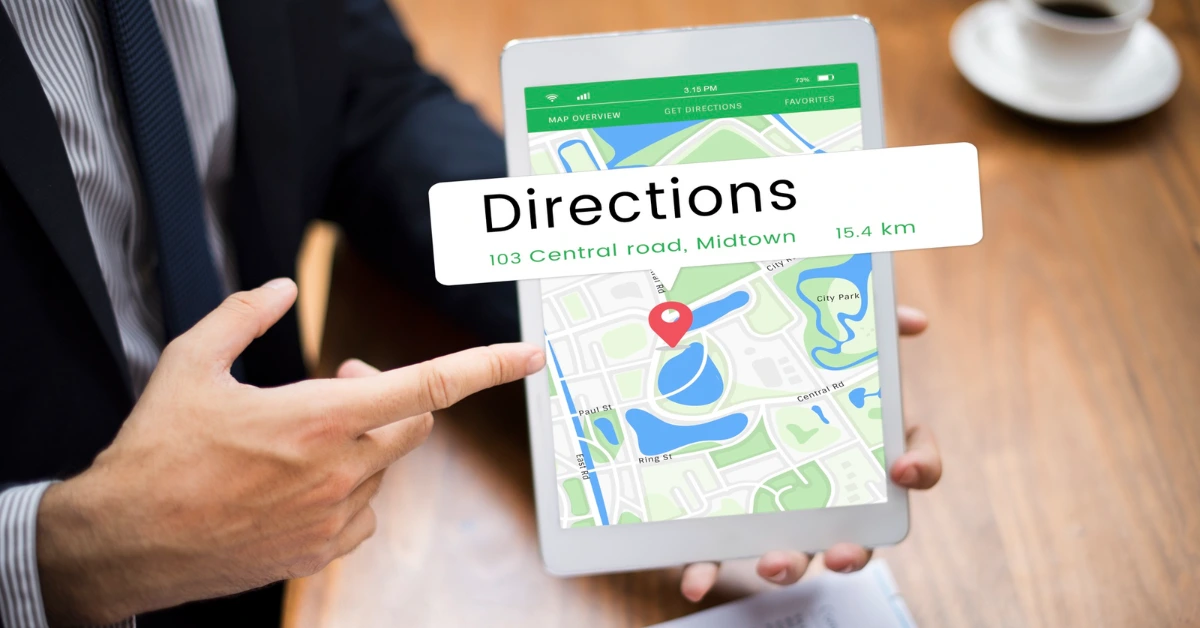In the competitive digital landscape, agency owners often need to expand their service offerings quickly without building in-house teams. White label teams provide an effective solution: a specialized third-party provider performs work (web design, marketing, SEO, development, etc.) behind the scenes, while the agency brands and delivers the service to clients. In practice, this means you can pitch comprehensive services under your brand name, even though a trusted partner handles the execution.
Many U.S. agencies turn to white label partnerships to boost their capabilities and market reach. Industry experts note that these alliances “enable faster market entry, reduced investment in research… and scalability in expanding offerings without a significant increase in internal resources”. By outsourcing to a white-label provider, you gain on-demand expertise and avoid the overhead of hiring new staff. This allows your agency to focus on strategy and client relations while the partner handles specialized tasks like SEO or app development.
Agencies reap major advantages from white label teams: easy branding of services, access to diverse expertise, and greater flexibility. The provider does the work under your name, so your clients never have to look beyond your agency – they see only your brand. Meanwhile, you save time and money; for example, partners often have enterprise-grade tools already in place, so you avoid investing in expensive software and training. In short, white-label relationships let agencies scale faster and cut costs: you pay only for delivered services (with no ongoing overhead), and complex projects get completed more quickly.
What to Look for When Evaluating a White Label Provider
Before finalizing a partnership, agencies should vet potential providers on core criteria like reputation, expertise, quality, pricing, and communication. These factors form the basis of our white-label evaluation checklist. Below are key areas to assess, with examples of how to evaluate each:

- Expertise & Technical Skills: Verify that the partner has the right skill set (design, development, SEO, etc.) for your clients’ needs. For example, if you need web development, ensure they know the relevant frameworks or CMS. Examine their past projects to confirm they handle technologies similar to yours. Partners with broad experience and in-depth knowledge are more likely to produce strong results.
- Portfolio & Experience: Review the provider’s portfolio of past work, focusing on projects similar in scope or industry to yours. A strong track record with comparable clients indicates they understand your challenges. Ask to see live examples or case studies of white-labeled projects. If possible, contact former clients or read published testimonials to gauge satisfaction and results.
- Reputation & Testimonials: Dig into client reviews and references. A provider’s online reputation (via sites like Clutch, Google, or industry forums) can reveal how reliably they deliver quality work. Look for positive feedback on relevant project types. When talking to references, ask about communication, problem-solving, and whether deadlines were met. Hearing about real experiences will help you judge their dependability and work quality.
- Communication & Collaboration: Clear communication is critical. Assess the partner’s responsiveness and workflow before signing. Ask about their preferred project management tools (Slack, Asana, etc.) and how often you’ll get status updates. A top partner will prioritize open channels and regular check-ins. For example, if time zone differences exist, ensure they have a plan (e.g. overlap hours or on-demand support). Good communication builds transparency and trust, leading to smoother collaboration.
- Turnaround Time & Scalability: Clarify expected timelines for deliverables and whether the team can ramp up for large projects. A quality provider should consistently meet deadlines and be able to scale their resources as your needs grow. As one expert notes, white-label firms are “tailor-built to perform the tasks you need and to do a lot of them,” meaning they have the capacity to grow with you. Ensure the partner can handle your peak workloads without sacrificing quality or overcharging for add-on tasks.
- Pricing & Contract Clarity: Understand their pricing structure and ensure it’s transparent. Will they charge by the project, hourly, or a monthly retainer? Make sure all fees (including any set-up or revision costs) are outlined upfront. A reputable agency provides clear, understandable pricing policies and strikes a balance between cost and quality. Beware of unusually low prices — they often come at the expense of quality. Also check how price scales: as projects expand, will rates remain fair and predictable.
- Quality Assurance & Ethics: Ask about the partner’s quality control processes (code reviews, testing, or campaign optimization). For SEO or marketing, confirm that their methods are transparent and ethical. Avoid any partner that uses “black-hat” tactics or secrecy; instead, choose one that adheres to best practices and provides clear reporting. For instance, a good white-label SEO team will deliver detailed audit reports and allow client dashboard access to track progress.
- Tools & Technology: Finally, consider their toolset. Leading white-label agencies often use enterprise-grade software that you might not have, from design suites to SEO analytics. Ask if you’ll have access to any client portals or dashboards. Using advanced tools means more sophisticated results — for example, white label SEO partners typically invest in high-end keyword and link analysis tools, which translates to better strategy.
Comparing White Label Teams by Service
The table below highlights how key criteria and deliverables can differ across specialties (web design, marketing, SEO, development). Use it to guide your evaluation based on the service you plan to white-label.
| Criteria | Web Design Provider | Marketing Provider | SEO Provider | Development Provider |
| Core Expertise | User interface/UX design, graphic design, branding | Campaign strategy, content creation | Keyword research, link building, analytics | Software engineering, coding languages |
| Typical Deliverables | Website mockups, prototypes, final design assets | Ad campaign setups, blog posts, reports | SEO audits, keyword reports, optimized content | Functional websites/apps, code repositories |
| Common Tools | Figma, Sketch, Adobe Creative Cloud, CMS (WordPress) | Google Ads, Facebook Ads, Email platforms | SEMrush, Ahrefs, Google Analytics, Screaming Frog | Git (GitHub), IDEs (VS Code), frameworks (React, .NET) |
| Key Metrics | Conversion rate, usability scores, visual polish | ROI, leads/conversions, social engagement | Organic traffic, search rankings, backlinks | Application performance, uptime, bug count |
| Turnaround Time | ~2–6 weeks for a new website design | ~1–4 weeks to launch a campaign | 3–6+ months to see SEO traction | Weeks to months (project dependent) |
| Pricing Model | Project-based or hourly | Monthly retainer or project-based | Monthly retainer or per-report/project | Project-based, hourly, or retainer |
Each column above is a general guide. For example, a white-label SEO partner should demonstrate expertise in analytics and content strategy, while a web design partner should showcase strong visual portfolios. Tailor your questions and checklist to the specific service area you’re outsourcing.
How do I choose a white label SEO agency?

White-label SEO has its own nuances. First,
check their own SEO credentials: a reputable SEO agency should rank well for relevant terms. If their site isn’t optimized, it’s a red flag. Request case studies showing real results (keyword rankings, traffic growth, conversions) rather than vague promises. Transparency is key: ask how they handle link building and content; ensure they follow Google’s guidelines. Also verify their reporting process—do they offer client dashboards or regular keyword reports? This keeps your clients informed. Finally, confirm they can scale SEO efforts to your clients’ needs (e.g., boosting efforts for high-priority campaigns) and that they keep tools and methods up-to-date.
What should I look for in a white label marketing partner?
When outsourcing marketing tasks (PPC, social media, email, etc.), focus on proven results and specialized skills. Ask for campaign case studies with metrics like ROI, lead quality, and conversion rates. A good marketing provider will share performance dashboards or analytics showing how previous campaigns performed. Ensure they have expertise in your required channels (e.g. Google/Facebook Ads, content marketing tools, CRM/email platforms). Communication is also critical in marketing: you’ll need regular strategy calls and updates, since marketing requires frequent alignment on messaging. Verify that they understand your industry’s target audience. In summary, look for an agency that combines creative strategy with data-driven tactics to meet your clients’ marketing goals.
What skills should a white label web design team have?
A white-label web design team should deliver polished, user-friendly website designs.
Portfolio review is essential: examine their past web designs on desktop and mobile, and check for strong branding and usability. The team should be proficient in design tools (like Figma, Sketch, or Adobe XD) and front-end technologies (HTML5, CSS, JavaScript). They should understand responsive design principles and accessibility standards. Ask if they handle every step (wireframing, UI/UX, final mockups) and whether they can integrate with a CMS if needed. In short, confirm their design samples align with your clients’ needs.
How do I evaluate a white label development team?

For development, technical expertise is the top priority. Verify the team’s proficiency in the specific programming languages and frameworks required (e.g., WordPress, React, Python). Check their portfolio for similar projects (like e-commerce sites, mobile apps, or SaaS products) and assess code quality if possible. Ask about their development process (version control, staging environments, testing). Good developers will have solid QA practices, including automated testing and code reviews. Also confirm they can support ongoing maintenance. As with other services, clear communication remains crucial—make sure their project management style and schedules fit your workflow. By validating their technical depth and process, you can ensure smooth execution of your web projects.
Frequently Asked Questions (FAQs)
1. What is a white label team and how does it help my agency scale?
A white label team is a group of professionals—designers, developers, marketers, or SEO experts—who work under your brand name. They handle the execution while your agency manages the client relationship. This setup allows you to scale services quickly without hiring in-house staff, reducing costs and accelerating project delivery.
2. How do I know if my agency is ready to partner with a white-label provider?
If you’re turning down projects due to lack of resources, facing delays from a stretched team, or planning to expand services like SEO, web development, or paid ads, then you’re likely ready. A white-label partnership allows you to fulfill client requests while focusing on growth and relationship-building.
3. What’s the difference between white-label services and outsourcing?
While both involve third-party execution, white-label services are branded under your agency’s name, making it seamless for the client. Outsourcing typically involves direct collaboration between the client and external vendor. White-label relationships are invisible to the client, maintaining your agency’s brand integrity.
4. What questions should I ask a white-label SEO agency before hiring them?
Ask about:
- Their keyword research and content strategy process
- Reporting frequency and metrics tracked (rankings, traffic, conversions)
- Link-building methods (are they white-hat?)
- Tools used (e.g., Ahrefs, SEMrush, Google Analytics)
- Case studies or success stories
- Client dashboard access
5. Can I white-label both design and development services from the same partner?
Yes. Many white label teams offer bundled services, including both front-end design (UX/UI, branding, Figma mockups) and back-end development (WordPress, custom CMS, apps). Make sure to evaluate their expertise in both areas before onboarding.







Share